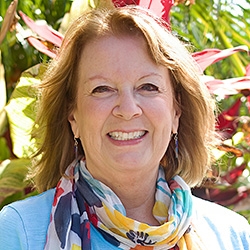
Search Results: history
-
-
-
Historically, work, education, resources, land, animals, and relationships were intertwined, shattered by capitalism and industrialization. We transitioned from communal self-sufficiency to individualism, industry, and smaller families. To avert extinction and thrive, we need to reconstruct social systems, emphasizing the commons, uniting communities with the land and resources in interdependent, regenerative harmony.
-
How do we address historical and present challenges regarding the invisibility of privilege and power? What can we do, especially if we are people with privilege, to transform these conditions? However challenging these kinds of situations are, and whatever our position, we can move towards more inclusivity by learning and doing significant inner and outer work.
-
Blame is a misguided habit that's used to avoid pain and suffering, offering only a momentary distraction and oversimplifies complex histories. It also disconnects us from choice and agency, blocks us from discovering more about ourselves and others, and can keep us from having compassionate, self responsible conversations. Instead, we can practice speaking in terms of impact and notice our experience without trying to escape it.
-
Empathy alone can be unreliable in guiding compassionate action. As seen in historical events, military training, personal anecdotes, and scientific experiments, empathy alone may not prevent people from harming others. A sense of duty or obedience, often instilled through fear of punishment and shame, might inhibit empathic action. The antidote may be to fostering empathy without resorting to control, shame, or punishment.
-
The focus on patriarchy emerges from the understanding that patriarchy plays a foundational role in everything. Yes, I mean it: everything. Patriarchy is not the same as sexism; patriarchy is to sexism very much what structural racism is to (interpersonal) racism: it's a system that runs independently of any one person's attitudes or behaviors. Join Miki for her first in a series of discussions on patriarchy.
-

What will it take to reclaim our fundamental relatedness with all things alive, surrender our attempts to control nature, and find a way of living that averts or mitigates the worst possible catastrophes awaiting us while it's still possible?
-
By focusing on NVC process and practice without factoring in the interdependent, systemic dimension we unwittingly diminish the power of NVC. We reinforce the dominant paradigm, rather than challenging it -- making NVC one more tool for compliance. NVC principles can turn against its own purpose in cruel ways. NVC could also empower social change. We'll need our attention on this matter if we are to contribute to transforming the oppression we face and our collective march towards extinction.
-
The American mythos of Independence Day is that liberty, equality, and opportunity are for all. Yet since the country's formation, these needs have been for some at the expense of others. It started with the brutal robbery and genocide of Native Americans and slavery of Africans. And this theme continued for generations in various forms, including how we related to other peoples, countries, and the ecosphere. To achieve true justice, liberty, and opportunity for all we may need to overcome the ego's sense of separation. Compassionate noncooperation may also be key.
-
We can see throughout many examples in history that when we look for "who" is at fault, and thereby seek social change through shaming that person (or that group), it tends to lead to disastrous long term consequences. Even if it works in the short term. Instead, if we want to end cycles of violence we can seek to understand systemic causes and context of individuals' behaviour. And from there, look for solutions that stem from this understanding.
-
- Learn how to transform NVC into a tool for systemic awareness and healing
- Examine the influence of difference, and uncover pathways that strengthen its capacity
- Learn to receive and offer feedback on impact in situations fraught with power differences
- Explore specific ways in which NVC systemically supports the full flowering of humanity
- Delve into the dynamics of cultural differences, and discover how NVC can systemically contribute to a liberation perspective
-
Trainer Tip: Mary explains the NVC principle known as the "protective use of force."
-
This exercise is most often the first activity in a beginning level workshop after the usual logistics/history/check-in. Penny Wassman experiences it as an opportunity for people to build connection with one another.
-
I want to hear others through the lens of the meaning their actions have for them rather than through the effect their actions have on me. The very root of empathy resides in this fundamental shift. Whenever someone’s actions are at odds with our own needs, most of us, most of the time, do the latter. In that way, we keep our attention on ourselves rather than on the other person. We cannot be in empathy when we are focused on how things affect us. Miki Kashtan poignantly shares about the challenges of empathizing with another when we really don't understand their actions.
-
Trainer Tip: Make a boring or "dead" conversation more interesting, meaningful and connecting. You can do this by connecting to the other person’s feelings, passions or desires. Read on for examples.
-
- Learn concrete tools for engaging with others as you embrace individual and collective liberation
- Find your own source of choice even in the face of challenges
- Release the constriction of scarcity
- Find an empowered option to respond to what is happening in our world
- Open the door to the possibility of thriving rather than merely surviving
-
There are many polarizing issues we can resist and fight over. The word "resistance" can mean fighting against what we don’t agree with in counterproductive ways. It can also be the illusion and futility of mentally fighting against reality of 'what is'. But acceptance, non-resistance, of what is doesn’t mean powerless resignation. Another way to resist is to accept and love whole-heartedly, with empathy and care for the people doing the things we are resisting.
-
When deciding if someone crossed your boundaries and how to respond, you may get conflicting opinions on it. These opinions can be coarse attempts to manage life with rules about what should(n’t) happen. Instead, so that you can find where you want to invest your energy, ask yourself questions that reveal what for you is truly in integrity, nourishing, connects to your heart, and deepens self understanding. Read on for examples.
-
Read how an American Buddhist NVC teacher with Jewish roots reflects on how any dehumanization in the Israel-Hamas conflict can be used to justify all kinds of violence that can escalate for generations. With acknowledgment of the complexities, his desire is for us to bring in respect, dignity and peace -- for both Israelis and Palestinians. He emphasizes compassionate advocacy of all humanity amid the ongoing crisis.














